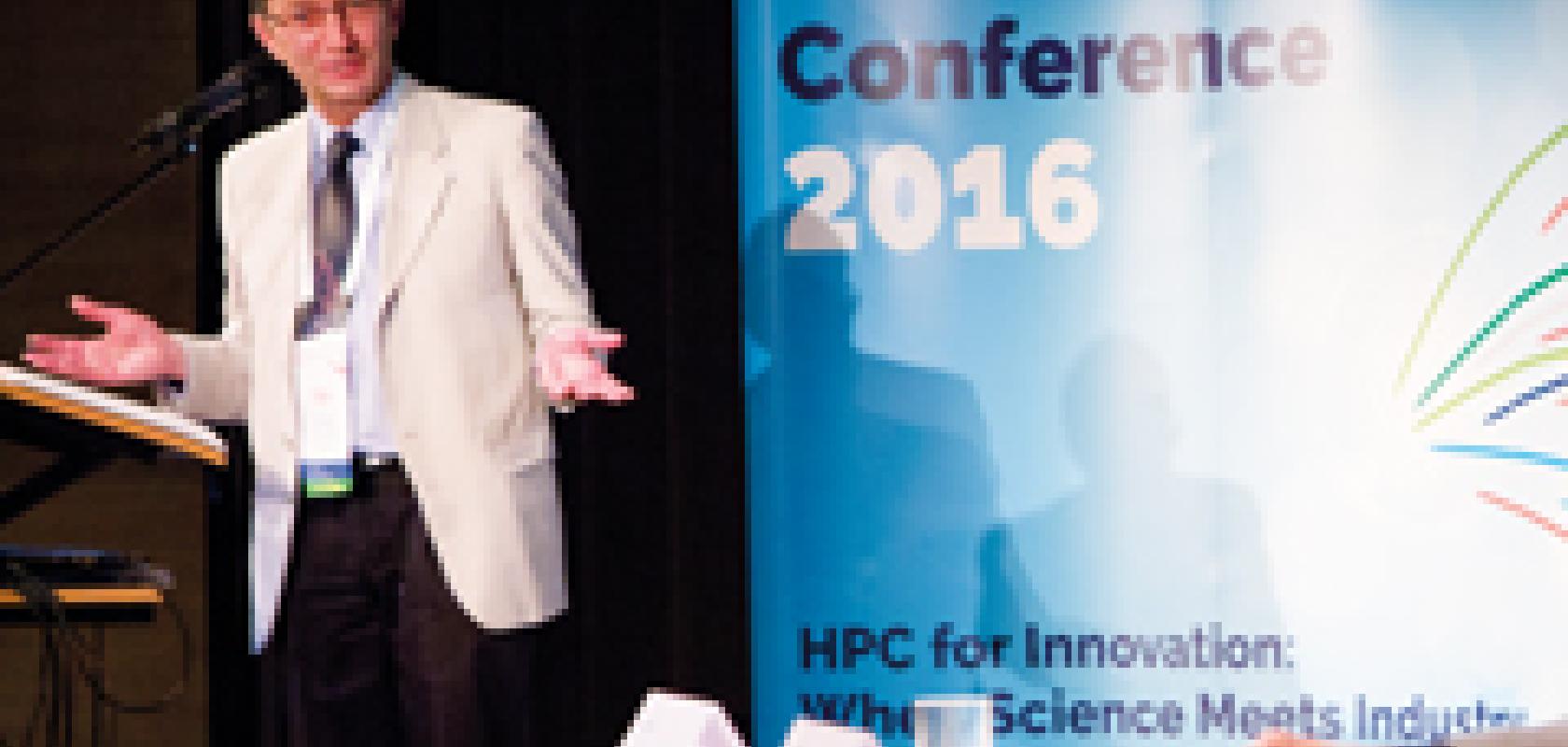The UNESCO World Heritage site of Prague formed the backdrop for the third edition of PRACEDays, hosted by PRACE (Partnership for Advanced Computing in Europe) and the Czech National Supercomputing Centre IT4Innovations, under the motto: When Science Meets Industry.
The scene was set in the first plenary session by the EC’s Leonardo Flores Añover, who explained to delegates that high-performance computing (HPC) is a crucial tool in Europe’s efforts to address critical challenges in science, industry and society.
Key issues facing the EU include the fact that scientific data is now always open, and that there are ‘serious issues with both fragmentation and a lack of interoperability’, Añover said. He affirmed that the role of HPC is crucial in Europe’s connected digital economy, providing the necessary computing power to analyse, simulate and extract added value from data provided by resources including the Internet of Things, research infrastructures and financial sources.
Añover suggested that any European Cloud initiative needs to be supported by a world-class pan-European infrastructure that offers high-performance computing as well as high-speed connectivity, data storage and efficient interfaces for cloud-based service delivery.
A plethora of fascinating talks on science and HPC were kicked off by Hans-Thomas Janka, research group leader at the Max Planck Institute for Astrophysics, who spoke on the subject of ‘Solving the Mysteries of Supernova Explosions’.
The first moments of supernovae – a celestial phenomenon involving the catastrophic explosion of a star – have been successfully modelled in three dimensions using HPC, revealing the huge complexity of these events and confirming neutrinos as the drivers of stellar explosions.
Janka concluded with a tribute to PRACE: ‘The HPC time allowed by PRACE has been invaluable in our investigations – thank you!’
Martin Winter, innovation manager at the European Chemical Industry Council, outlined the importance of digitisation in chemical industries. Pointing out that European chemical production is dipping – certainly in relation to that in China – Winter described HPC as a key enabling technology essential throughout the industry in value chains, from logistics, product and process planning, plant operations and safety, and in the monitoring and maintenance of industrial equipment.
He called for the greater use of data analytics, adding: ‘We are faced with a tsunami of data because of digitisation, and very little of it is being used. We can and must do more!’
The use of HPC within scientific aspects of industry was outlined by several speakers over the two days, including Christoph Gümbel, director of virtual vehicle at Porcshe; Anders Rhod Gregersen of Vestas Wind Systems; and Merle Giles of the University of Illinois. All three referred to the growing use and importance of HPC in industry; with Gümbel perhaps presenting the most succinct overview of the situation: ‘Global trends are placing greater demands on virtual development. HPC has become a real and effective workhorse for us.’
Organisers were delighted with proceedings. Alison Kennedy, chair of the PRACE board of directors, said after the event: ‘PRACEdays16 has been a success throughout with more participants, more interactions, and more awards. We clearly see the need for this conference and the entire European HPC Summit Week to be developed into the signature event for HPC in science and industry in Europe.’
A short selection of videos relating to the event can be viewed at http://bit.ly/1TIDWW9
To bring the conference to a close, former Scientific Computing World editor Dr Tom Wilkie moderated a panel discussion entitled: How can we assess European competitiveness in the global HPC Race? The Panellists were: PRACE IAC chair Anders Rhod Gregersen, PRACE SSC chair Petros Koumoutsakos, the European Commission’s head of Unit e-Infrastructures Augusto Burgueño Arjona, Merle Gilles from the NCSA University of Illinois, and the PRACE Ada Lovelace Award for HPC winner Zoe Cournia.
In an informative and good-natured discussion the panel reflected on efforts to fulfil the European Commission’s commitment to place Europe in the global top 3 in HPC by 2020, and on how increased investment into HPC will impact European competitiveness.
With the impending UK referendum on EU membership due to take place just a few weeks after the Prague meeting, Wilkie drew loud applause from delegates when he described how he uses the work and impact of PRACE as a great example of why the EU is so important as a catalyst for world-class science – and why it was important that the UK should vote to remain part of it. It seemed a very fitting way to conclude such a successful meeting.


